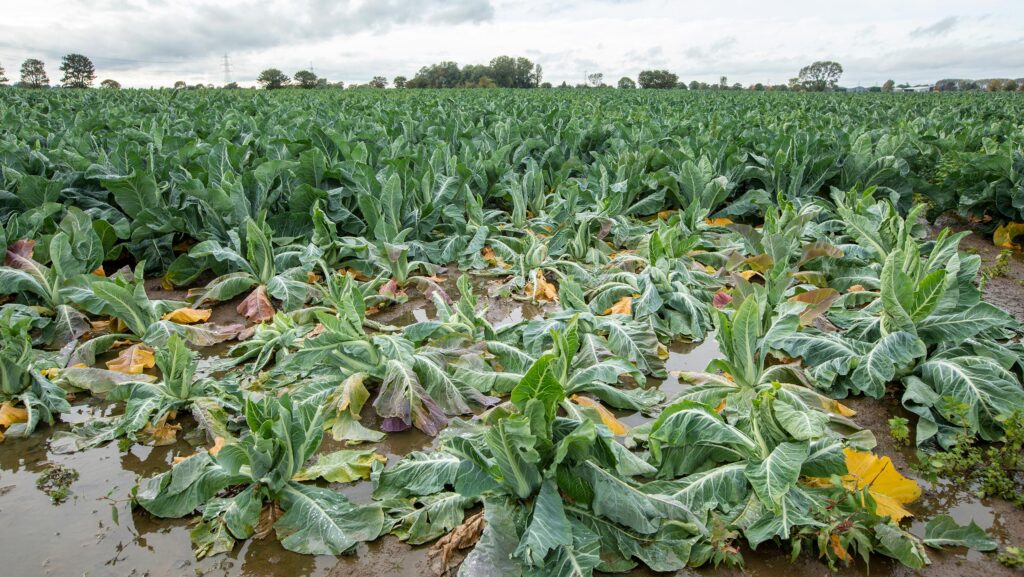Extreme weather forces UK to import ‘significantly’ more veg
 Cauliflower loss due to flooding - Lincolnshire, October
Cauliflower loss due to flooding - Lincolnshire, October Buyers in the UK are increasingly turning to vegetable imports following a tough year of weather for domestic growers.
Jack Ward, chief executive of the British Growers Association (BGA), told Farmers Weekly the past few months of rain on top of last year’s difficult spring and wet summer had “set the tone” for supply.
See also: Prospect of poor harvest threatens ancillary farm industries
Crops such as cauliflowers, cabbages and carrots have begun to run out sooner than they usually would, and the wait for new season crops to come in is expected to be longer because the wet weather is holding back planting.
“Since I’ve been doing this job, we’ve had a series of crazy weather events,” said Mr Ward.
“If we go back to 2018, we had the Beast from the East, we’ve had drought, we’ve had extreme wet, we’ve had a whole series of exceptional weather situations.
“Because the margins are so small in fresh produce and the risks are so high, coupled with problems with labour availability, people are looking back over the past three years and thinking they’re not sure they want to operate with this level of risk in the business.
“They’ll scale back, grow cereals and do other stuff where the risk is not so great, because another difficult year could wipe them out. The amounts of money involved are so colossal that when it goes wrong, the losses are staggering.”
Mr Ward said growers needed a “statement of intent” from the government to show it believed the fresh produce sector was important, noting that there was a need for more support with capital investment, research and development, climate change adaptation and mitigation, and a multi-year seasonal labour scheme.
“We’re just asking for a marker in the sand about where collectively, consumers, growers, retailers and government think is a sensible point to make sure we’ve got security of supply, not just this year, but frankly, over the next decade,” he added.
“Unless we start that conversation very soon, we will start losing businesses and people will not want to go back into these things because the cost of re-equipping and getting back in is so prohibitive.”
